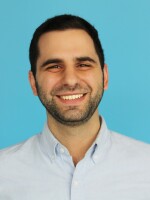China granted permission Wednesday for cancer specialists from the United States, Germany and other countries to help treat imprisoned political dissident and Nobel laureate Liu Xiaobo as he struggles with late-stage liver cancer, according to a statement released by a local judicial bureau.
The concession by China is seen by some as an attempt to improve its image on human rights as Chinese President Xi Jinping attends a G-20 Summit in Germany this weekend. Sources told Reuters that China is concerned the ailing Nobel laureate's treatment could negatively affect President Xi's talks at the gathering.
The brief statement Wednesday said the Chinese medical team had agreed with a request from Liu's family for the foreign cancer experts. The statement did not specify which other foreign countries besides the United States and Germany may send experts.
As NPR has reported, late last month the 61-year-old Liu was allowed out of prison on parole for medical treatment after apparently receiving a diagnosis of terminal liver cancer at the end of May.
Liu's supporters have questioned whether Chinese authorities intentionally delayed his diagnosis, according to the Associated Press.
Liu was part of the Tiananmen Square protests in 1989, but the essayist and literary critic's most famous political dissent came in 2008 when he composed a six-page manifesto entitled "Charter 08."
It called for sweeping political reforms, including separation of powers, an independent judiciary and doing away with the crime of "incitement to subvert state power." This was the very crime for which the government sentenced him to 11 years in prison in 2009, one year after he published "Charter 08."
In 2010 Liu received the Nobel Peace Prize, but China did not let him travel to Oslo to receive it, nor did it allow him to send any friends or family to accept the award on his behalf. It was the first time since 1935 that no one was present to receive the Nobel Peace Prize; an empty chair was held in Liu's place at the ceremony.
China also blocked transmission of the ceremony's broadcast on the BBC, CNN and other stations, as we reported at the time.
Chinese authorities have also held Liu Xia, Xiaobo's wife, under house arrest since the 2010 award ceremony.
China's acceptance of foreign medical expertise on Wednesday was seen by sources speaking with Reuters as possibly the government's first step toward allowing Liu to travel abroad to receive treatment, something his family and supporters have demanded.
In a statement released Wednesday, Amnesty International called for China to release Liu.
"Time is running out for Liu Xiaobo," said Salil Shetty, secretary general at Amnesty International. "It is not too late for the authorities to end this cruel farce. They must let Liu Xiaobo and his wife, Liu Xia, travel abroad to get the medical treatment he so desperately needs."
Copyright 2021 NPR. To see more, visit https://www.npr.org. 9(MDAxNzg0MDExMDEyMTYyMjc1MDE3NGVmMw004))






